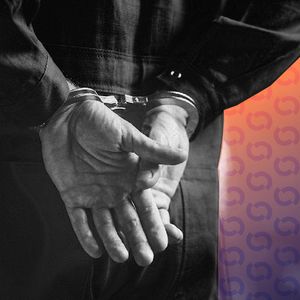Hungary Cracks Down on Unlicensed Crypto Exchanges
2 min read
Hungary, a landlocked country in central Europe, has enforced strict rules on crypto firms. According to reports , the new law makes it illegal to use unlicensed cryptocurrency exchanges. The law also imposes heavy penalties on both users and operators. Notably, this change marks a major shift in how the country views digital assets and crypto trading. Heavy Punishment for Rule Breakers Using unlicensed crypto exchanges is now a felony under the new law. People who violate this law could face up to five years in prison. Operators of these exchanges could also face even tougher penalties, with sentences reaching up to eight years. The law focuses on high-value crypto transactions, defined as those over 50 million Hungarian forints (about $146,000) and up to 500 million forints (about $1.46 million). Meanwhile, the recent regulatory changes have disrupted the country’s crypto market. Some international platforms like Revolut and Bitstamp have stopped their services there, citing legal uncertainty and a lack of clear licensing rules. Critics say Hungary’s rules are stricter than the EU’s Markets in Crypto-Assets (MiCA) regulation, which aims to make laws consistent across member states without punishing users criminally. It is worth noting that Hungarian authorities have not yet provided a schedule for setting up the licensing rules. However, until the law is issued, the future of crypto in the country remains uncertain. Thailand Clean Up Crypto Platforms Without Approval Similarly, the government of Thailand has passed new laws to block unregulated foreign crypto platforms and stop online financial crime. These changes focus on stopping illegal peer-to-peer (P2P) crypto platforms and ensuring that all digital asset businesses follow the rules. Under the new law, foreign platforms that try to operate in Thailand without a license could face serious consequences. These include up to three years in jail and a fine of up to 300,000 baht, equivalent to $8,700. Offenders could also face both penalties. As reported by TheCoinRise, the Thai Securities and Exchange Commission (SEC) will have the power to stop suspicious transactions, freeze assets, and require crypto service providers to report scam activity. Importantly, these changes are part of a joint effort with other digital agencies to tighten security. Hungary Still Supports Crypto Growth Even with all the crackdowns, Hungary is not turning away from crypto. The country is exploring safer, more regulated ways to grow its digital economy. In 2022, the financial technology associations of the Thailand Fintech Association (TFA) and the Hungarian Blockchain Coalition (HBC) signed a Memorandum of Understanding (MOU) to help bring out the best in blockchain technology in their countries . The collaboration helps both countries explore ideas that benefit and enhance the growth of the blockchain industry . The MoU signing is also a significant milestone of financial stability for both countries. The post Hungary Cracks Down on Unlicensed Crypto Exchanges appeared first on TheCoinrise.com .

Source: The Coin Rise



